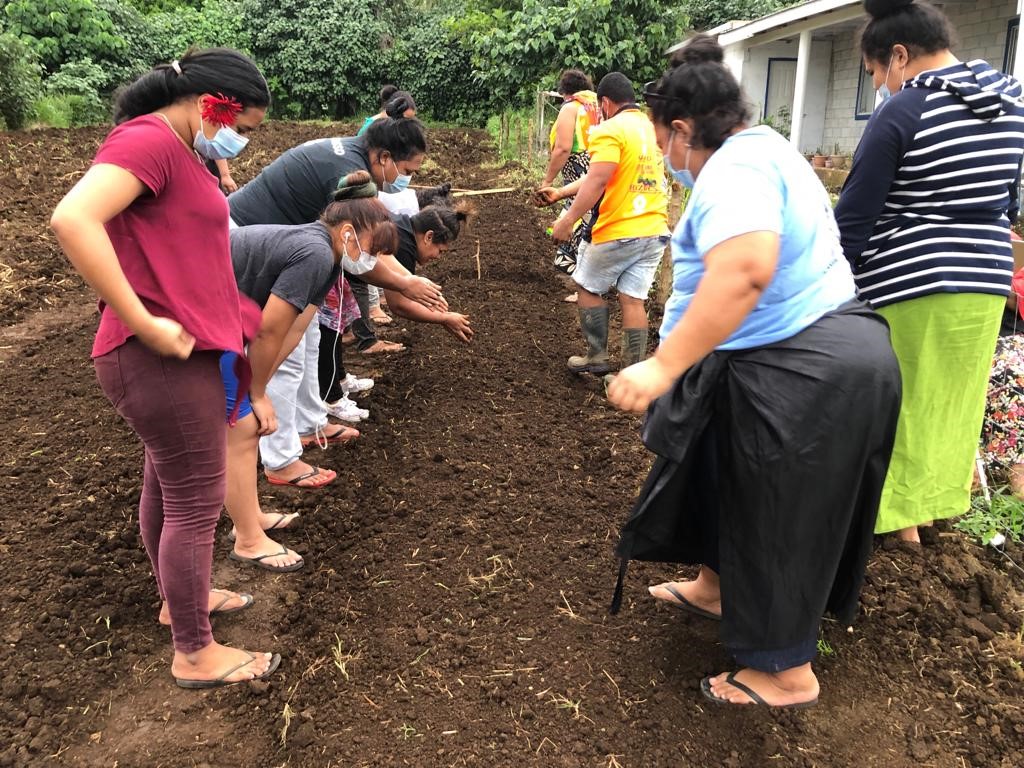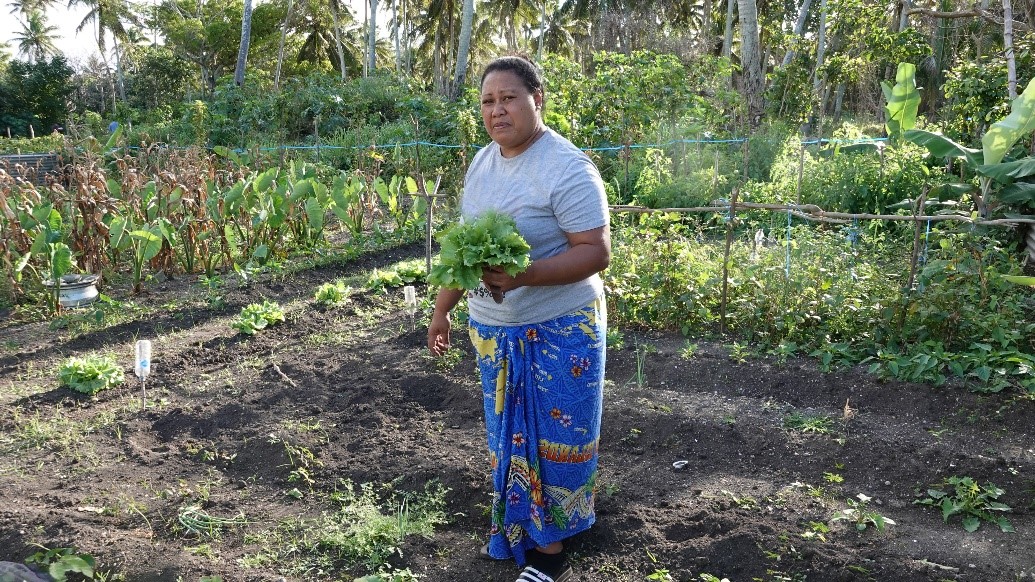After the tsunami, home gardens provide fresh food and renewed hope in Tonga
IFAD Asset Request Portlet
Asset Publisher
After the tsunami, home gardens provide fresh food and renewed hope in Tonga
Estimated reading time: 2 minutesToakase Vaioleti was at home on 15 January 2022, when she heard the warnings shouted from vehicles passing outside: “Tsunami! Leave your homes now!” In a panic, she and her family left their house on the north-west coast of Tongatapu and drove to higher ground.
The powerful explosion of the Hunga Tonga Hunga Ha’apai (HTHH) underwater volcano triggered a massive tsunami that devastated low-lying coastal areas on the Tongatapu, ‘Eua and Ha’apai islands of Tonga.

When Toakase and her neighbours returned home, they found ruined houses, broken pipes, and water tanks ripped to shreds. Everything in Toakase’s home was destroyed.
Making matters worse, the volcanic eruption had deposited a thick layer of ash across Tongatapu, contaminating drinking water and threatening crops and fruit trees. “I had just received fruit trees and I had a vegetable garden. Everything was planted and doing really well.”
Planting the seeds of a better future
The disaster wiped out her garden and Toakase, like many of her neighbours, had to start over from scratch. Building on an existing IFAD-funded project, the Pacific Islands Rural and Agriculture Stimulus Facility (PIRAS) is helping Tongan farmers rebuild their food systems after both COVID-19 and the tsunami.
Through community nurseries managed by women’s groups, PIRAS helps increase the local supply of valuable planting materials. Toakase and members of her community’s women’s group are re-establishing their home gardens with the seedlings raised in these nurseries.
To set up a plant nursery, PIRAS works with the community to prepare the land, install fences to protect against roaming livestock, and provide training on preparing garden beds, sowing seeds, transplanting seedlings, and making manure fertilizer.

Green fingers and healthy diets
With access to Tonga nearly impossible in the weeks following the tsunami, home gardens provided a critical source of fresh produce, improving family diets and nutrition. “I’m thankful for this opportunity because the food we received from family overseas or humanitarian aid was mostly canned, non-perishable goods. The garden makes it easier for me to walk out and grab what I need.”

Toakase’s enthusiasm for her garden has made her an energetic advocate. “I urge every woman to start growing her own vegetable garden. I didn’t have to spend money and if you don’t have any money then at least you have a garden where you have food all the time.”
When asked if she plans to sell her vegetable harvest for an income, she shakes her head.
“I don’t sell any of my vegetable harvests, I will give to my family who have suffered just as much as I have. It also is a great way to show them that having a garden is a great thing, so they are encouraged to eat healthier and not be so dependent on imported foods.”
The tsunami has left an indelible mark on the land and in the minds of Tongans. But as home gardens like Toakase’s begin to thrive again, Tongan communities are rising from the ashes and learning to recover from both COVID-19 and the HTHH disaster.
Find out more about IFAD’s work in Tonga.
PIRAS is a collaboration between IFAD and the Australian Government and part of IFAD’s Rural Poor Stimulus Facility.
Publication date: 02 August 2022